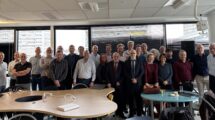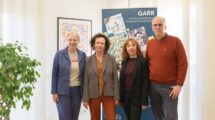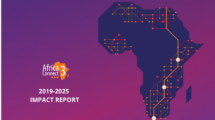Words: Fabio Greiner (Switch) and Jana Ernekerová (Cesnet)
In the first week of December 2024, we participated in CLAW, GÉANT’s annual crisis exercise. As the pan-European network connecting national research and education networks (NRENs), GÉANT organises this dynamic event to help participants build resilience against unexpected challenges. While our work in security product management and awareness rarely places us in the middle of a crisis, we were eager to gain a first-hand understanding of crisis handling and its broader implications for building organisational resilience.
The two-day training consists of various workshops on the first day and a crisis simulation on the second.

Each CLAW scenario takes place in Guilder, which is a fictional country created specifically for the CLAW exercise, serving as the setting where scenarios unfold to simulate crises involving its national research and education network, GuilREN. This year’s crisis took place at the University Medical Center (UMC) Sardos, a GuilREN client, where the beloved Queen Ann was being treated for a (not so publicly known) medical condition. The two of us ended up sharing the role of coordinator of the hospital team.
Jana attended a workshop on teamwork during crises, led by Wouter Beijersbergen van Henegouwen. A key takeaway was the importance of overcommunicating, as other participants may not share the same information. Another critical point was the need to step back periodically to re-evaluate the situation. Reflecting later, Jana realised how these lessons stood out—both for their relevance and the challenge of applying them effectively during a crisis, as we experienced the following day.
Meanwhile, Fabio attended a session with Roel Derckx, who emphasised that effective crisis management strengthens not only the response team but the entire organisation. You could say: ‘A resilient organisation in a crisis thrives even in everyday chaos.’ This perspective set the stage for the three key insights we took from CLAW.
Broaden Your Perspective
Crises often extend beyond your immediate responsibilities, making a broader focus essential. At CLAW, teams were divided by function—Management, Communications and IT from GuilREN and our UMC Sardos team. Immersed in the hospital team’s challenges, we missed opportunities to leverage support from other groups working on the same crisis. Communication across teams is key to a coordinated response, a principle that applies as much to everyday work as to emergencies.
Embrace Your Agency
Reflecting on the exercise, we recognised a common barrier: ‘Non-power holders underestimate their agency and wait for decisions from “all-powerful” leaders,’ as John Cutler explains. In our coordinator role, we expected other teams to approach us if collaboration was needed, but this passive mindset limited our effectiveness. The lesson? Don’t wait for others to act. Take the initiative, propose ideas, and reach out—effective collaboration requires active participation from everyone, regardless of your authority!
Accept Imperfection in Crises
Perfection is an illusion in crises. The fast pace requires prioritising, making decisions quickly, and adapting on the fly. Mistakes are inevitable, but as Roel Derckx advised, taking time for ‘Hot Interventions’—brief pauses to reflect and adjust—can redirect efforts effectively. For instance, during the simulation, we took a little pause (actually, a few seconds…) to reflect, helping us regain focus and identify overlooked tasks. Accepting imperfection doesn’t mean settling for mediocrity; it means staying agile and learning continuously. This mindset is invaluable not just in crises but in day-to-day work.
These lessons highlight the wider benefits of effective crisis management. By applying these principles, organisations can increase their resilience and improve their response to both crises and everyday challenges.
CLAW provided us with more than crisis management skills; it offered a deeper understanding of resilience. By connecting with peers from the GÉANT community across Europe, we shared experiences and returned home with fresh insights and ideas. The lessons we learned—broadening focus, embracing agency, and prioritising adaptability—extend beyond crises, offering a framework for tackling challenges in everyday work and fostering organisational growth.







